|
Benjamin Hale
Professor
Environmental Studies/Philosophy
University of Colorado, Boulder
Office: SEEC S238A
bhale (at) colorado.edu
Lab: environmentalthought.com/
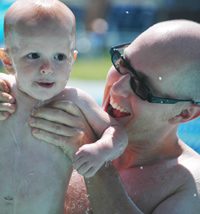

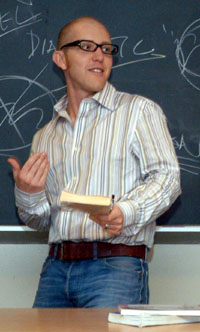
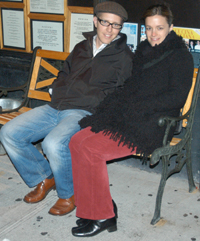
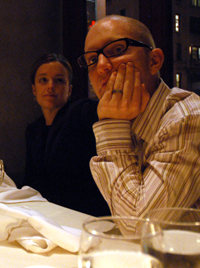
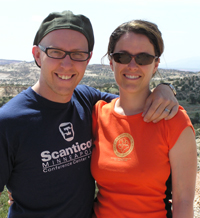
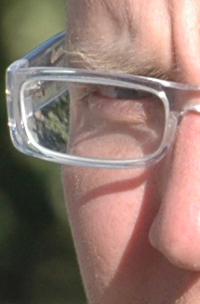
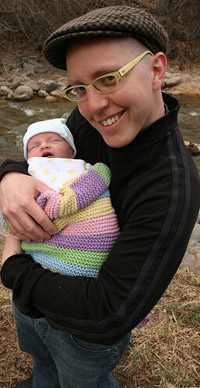
More pics...
|
Dr. Benjamin Hale is Professor of Philosophy in the Philosophy Department and the Environmental Studies Program at the University of Colorado, Boulder. From 2006-2008 he was Director of the Center for Values and Social Policy when, among other things, he helped found the Rocky Mountain Ethics (RoME) Congress with Alastair Norcross. He continues active engagement with the Center and the Philosophy Department by advising philosophy students and continuing to organize RoME. Back in the old days, he worked closely with the Center for Science and Technology Policy Research, located under CIRES, the Cooperative Institute for Research in Environmental Sciences, though that Center is defunct now. He has been co-editor (with Andrew Light) of the journal Ethics, Policy & Environment since 2009 and while Professor Light has been working in a political position as Assistant Secretary of Energy for International Affairs, he has been acting as the sole editor. From 2013-2019 he was the Vice-President and then the President of the International Society for Environmental Ethics. His primary area of research focus is environmental ethics, though he maintains active interests in a wide range of ethical topics. For a time he was blogging about these and other issues regarding ethics, policy, and the environment at http://cruelmistress.wordpress.com though he has taken a brief blogging hiatus to focus on other research.
Professor Hale joined the University of Colorado, Boulder in 2005. Before that, he was Interim Director of the Environmental Studies Program and Visiting Assistant Professor of Environmental Philosophy at New York University. Over the years, he has also taught environmental policy at Columbia University's School of International and Public Affairs, as well as philosophy at Hofstra University and Stony Brook University.
Dr. Hale was born and grew up in Virginia, about 35 miles south of Washington D.C. He attended the Thomas Jefferson High School for Science Technology, thinking during his childhood that the best and most interesting academic fields were those in the sciences. Even then his main interests were in the humanities and ethics, though he didn’t realize so at the time. Hale took an early interest in Russian and Cold War Politics, and began at TJHSS&T the journey that would eventually carry him to earn his Ph.D. in Philosophy. In 1988, he went with his Russian class to Russia on one of Gorbechev’s early Гласность (Glasnost) exchanges.
In 1990, Hale chose to attend a small liberal arts college with an established foreign exchange program in Russia. Kalamazoo College, his alma mater—and the alma mater of both of his parents, not incidentally—offered an exciting and innovative alternative curriculum that suited his interests as a young student and eventually shaped his feelings about academics. The college's ‘K Plan’ requires that students study abroad, convene a four year portfolio, spend a quarter doing career development, and devote at least a quarter to a Senior Individualized Project. For his fulfillment of the K Plan, he spent two quarters studying in St. Petersburg, Russia, one quarter working in graphic design at a video post production house in New York City, and another full quarter working on a theoretical analysis of arguments criticizing the modern mass media. In all, Kalamazoo was for him an idyllic combination of the ideals of academia: intellectually vibrant, comfortably sized, experientially based, and beautiful.
After ‘K’ College, Hale was granted a Thomas J. Watson Fellowship to study the impact of the political changes in the Russian art world. With this funding he returned to St. Petersburg to begin the arduous task of interviewing artists in a language that he foolishly believed himself to have mastered after only one semester abroad. He spent his time in Russia gallivanting from art studio to art studio, interviewing and befriending struggling artists. This turned out to be considerably more depressing than he had expected, since drugs, penury, and misery were definitive of the art scene at the time. Still, his Russian improved, he learned much about the impacts of the transition of Soviet socialism to capitalism, and he discovered the multitudinous ways in which the Русский дух can creatively be interpreted using just an old newspaper, a bottle of vodka, and a fish skeleton.
Seeking a change, he shook off the icicles and returned to the warmth of the United States to begin a degree in environmental policy at the University of Arizona, in Tucson. The desert Southwest provided a transformative backdrop and political proving grounds on which to cut his teeth in environmental policy. The rampant development of the Sonoran Desert, the plight of the ferruginous pygmy owl, the depletion of water resources and the conflict of the Mexican immigrant and Native American population all contributed to his sense of how essential environmental issues are to public lawmaking.
After completing his M.P.A. degree, Hale moved to New York to study philosophy at the State University of New York at Stony Brook. He selected the department because it is one of the few places in the country that specializes in contemporary European philosophy, which interested him at the time. It boasts one of the highest concentrations of philosophers focusing on Continental philosophy of any other department in the states. Moreover, it has a proud history of doctoral students with expertise in environmental ethics. For many years he was the webmaster and designer of the philosophy department website, though the baton as been passed along to a younger student now.
In 2000, Hale continued his study of contemporary German political and ethical theory by moving to Tübingen, Germany, to begin as a visiting scholar at the University of Tübingen. He was thrilled to be studying in the same buildings in which the philosophy- and literature-greats Hegel, Hölderlin and Schelling once studied. He spent much of his time at the University's philosophy library, which is bedecked with walls of books, among which any ambitious student cannot help but get lost. More importantly, situated in such an exciting, quaint and historically rich city, he also spent a fair amount of time drinking Hefeweisen, sipping coffee and eating all variants of Käse on his balcony.
After two formative years in Germany, Dr. Hale returned to the United States to complete his dissertation. Not long after his return, he was swept off his feet by a stunning New Yorker. He married a year later, on February 20, 2004, in a brief ceremony in Manhattan's City Hall, all at once declaring his lifetime commitment to her, upsetting his mother for not planning an enormous and costly wedding, and calling into question the sanctity of heterosexual marriage. (No, Really... The ceremony lasted less than 60 seconds.)
On March 9, 2006, Hale became the proud father of one Jasper Harrison Hale, whose many pictures can be seen here: [Pictures of Jasper]. Like most parents, he is too proud to do a decent editing job on these picture collections, so viewers should be warned that there are about 50-100 pictures per link, and that, well, they're all Jasper, all the time. Further, apologies to those with refined photographic sensibilities. Many of the photos are on Shutterfly to give paper-oriented grandparents something to purchase. More recently, he has migrated to a Smugmug account. Check out recent pics at "prettygoodpics.com."
Hale is an avid enjoyer of nature—a lover of hiking, camping and mushroom hunting. His interest in mushroom hunting began during his time in Russia, where hunting mushrooms was less a matter of finding Mother Nature’s Easter Eggs and more a matter of finding something to eat. Hale also began an intense study of pickling during his time in Russia, and has been known to give homemade pickled eggs, beets, and cauliflower as gifts. In his less homespun incarnations, Hale enjoys biking and traveling. He plays many variations of games, but is most addicted to chess. Hale is a fairly decent scrabble player, though his younger sister, Lauren, is the true word freak. (Dr. Lauren Hale is also an academic in her own right. She is currently Professor of Preventive Medicine in Stony Brook University's School of Public Health.)
Outside of this, he is a self-identified “Veg-Aquarian,” which means that he eats mostly vegetables, but that unlucky sea creatures sometimes make it onto his plate. He prefers red over white wine; unfiltered, unpasteurized beer over the river water that large companies with Czechoslovakian names peddle; dark roast over breakfast-blend coffee; and stinky over mild cheese. He once had an illicit love affair with an espresso machine, but that steamy arrangement dissipated upon his return to the States. He jogs regularly, though his knees plead with him not to. He reads, he writes, he gets lost in the blogosphere, and he comments on current events. He is, in a word, a hopeless dilettante.
This site was designed with significant input and aid from Marcus Bartlett, a professional designer for a large branding firm in Manhattan. In itself, this is somewhat unremarkable, as a designer is a designer is a designer. But this site was designed more than two decades ago as a result of a barter arrangement—an exchange, if you will—of philosophy discussion for clean, professional design. Marcus has an abiding interest in philosophy, as well as some documents that he wanted conceptually reviewed, and looked to Dr. Hale for aid in understanding and writing about philosophical material. After much discussion, considerable design conceptualization, and many, many beers and cups of coffee with Hale, he then designed the layout and the graphics on the website, though Hale followed Bartlett's design by programming the HTML and including the content. Thanks and kudos to Marcus for his help—and three cheers to anyone skeptical that a degree in philosophy pays big dividends.
|





